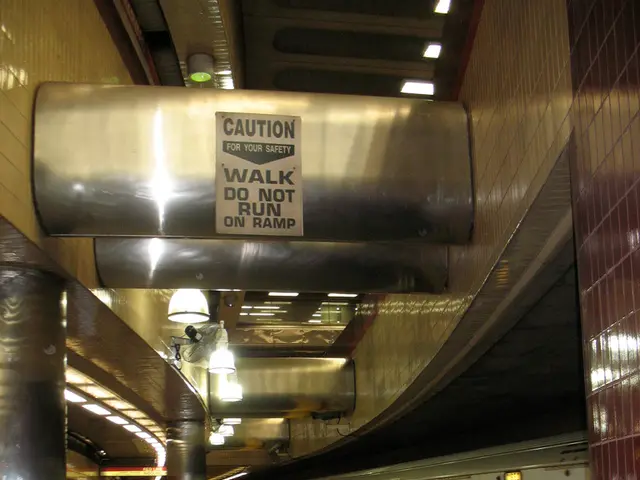U.S. Congress Increases Scrutiny of U.S. Universities' Relationships with China
The heat's on for China's involvement in American universities, with bipartisan pressure from Capitol Hill intensifying and becoming one of the most persistent and aggressive oversight campaigns in Washington. While recent actions by the Trump Administration, such as blocking foreign students at Harvard or halting new student visa interviews, have grabbed headlines, Congress has been cracking down on the relationship between American colleges and China long before these moves.
For years, politicians on both sides have expressed worries about China exploiting the openness of American universities to advance their military and technological aims. Back in 2019, Senate hearings and reports cautioned that Chinese government-linked entities were exploiting academic partnerships to facilitate technology transfers and undermine research integrity.
Congress has now entered a more public and punitive phase, using its bipartisan power to enact sweeping legislation and relentless oversight to curb China's academic infiltration. They're no longer just delivering warnings, but formulating and implementing policies. Legislation in the works includes reforms to Section 117 of the Higher Education Act and new powers for CFIUS, both designed to severely restrict Chinese influence across the American higher education landscape.
This shift is most evident in the mounting congressional pressure on American universities to cut ties with Chinese institutions. These partnerships, once viewed as benign, are now seen as potential avenues for foreign influence or technology transfers. In early 2025, the Select Committee on China sent letters to universities like Eastern Michigan University, Oakland University, and the University of Detroit Mercy, urging them to sever ties with Chinese universities.
Meanwhile, elite universities like Harvard are facing scrutiny for their collaborations with Chinese entities linked to military and sanctioned organizations, raising concerns about potential dual-use research and partnerships that could inadvertently support China's military advancements. As a result, American universities should expect more hearings, more investigations, and ultimately more laws aimed at keeping their institutions safe while addressing national security concerns.
It's crucial to strike a new balance between academic openness and national security in this context. Lawmakers must find a nuanced approach that safeguards both the integrity of research and the values of academic freedom without compromising national security.
Bonus: Behind the Scenes
In addition to the ongoing investigations into academic partnerships and foreign funding, the Department of State has announced plans to aggressively revoke visas for Chinese students due to espionage concerns. There's also a threat to revoke the tax-exempt status of universities maintaining controversial partnerships, such as Harvard’s ties to the Xinjiang Production and Construction Corps.
The House has also advanced legislation that would restrict Department of Homeland Security funding to universities maintaining relationships with specific Chinese institutions tied to the military or intelligence services.
Overall, Congress is keen on ensuring that national security concerns take precedence over academic openness in the relationship between American universities and China. American universities will have to tread carefully in this new landscape to protect their missions while addressing the growing concerns on Capitol Hill.
- The relationship between American colleges and China has become a hot topic in Washington, with Congress intensifying its scrutiny and implementing policies to curb Chinese academic infiltration.
- Legislation in the works includes reforms to Section 117 of the Higher Education Act and new powers for CFIUS, aimed at restricting Chinese influence across the American higher education landscape.
- American universities, including Harvard, are facing increased scrutiny for their collaborations with Chinese entities linked to military and sanctioned organizations, potentially compromising national security.
- Beyond investigations into academic partnerships and foreign funding, the Department of State plans to revoke visas for Chinese students due to espionage concerns, and legislation restricts Department of Homeland Security funding to universities maintaining relationships with certain Chinese institutions.







